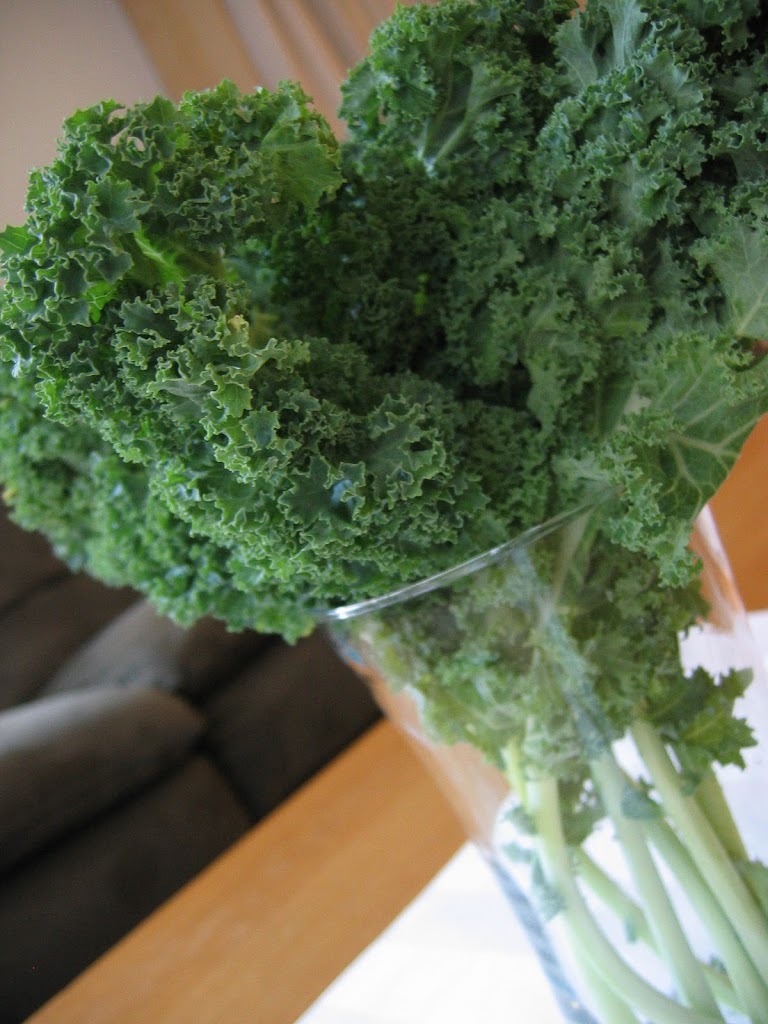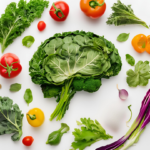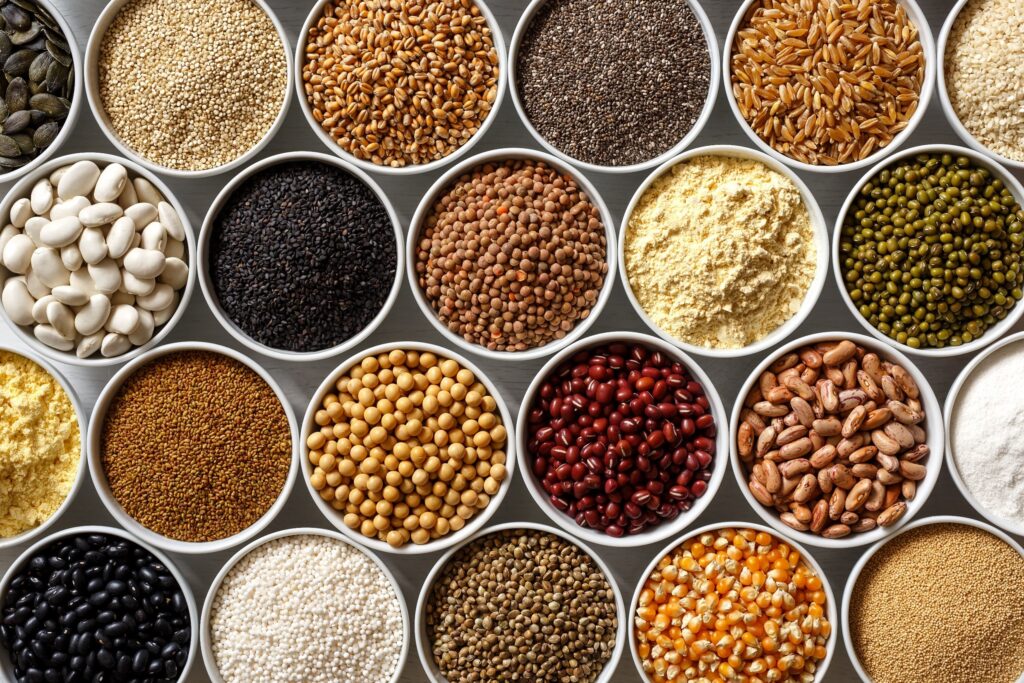For instance, what do kale, brussels sprouts, cauliflower, broccoli, collard greens, kohlrabi, and cabbage all have in common? (Besides a tendency to smell a little funky when overcooked?)
Go on, guess. I’ll wait right here.
However, unlike the nouveau-chic broccoli and cauliflower posturing glamorously in their climate-controlled display cases, kale is old school, having been cultivated for over 2000 years. Of all the B. oleracea varieties, kale (along with collards) is closest to its wild-cabbage roots, most closely resembling the species’ ancestral form. (I like to think it has ancient veggie juice coursing through its little plant veins, but maybe that’s just me.)
Better watch out, bacon. There’s a new game in town.
Grandma brussels sprout?
Also, a nugget for all you brussels sprout lovers (and haters) out there: kale may even be the great-great-grandma of brussels sprouts, a botanical feat I’m happy to research for a future post. (If that strangely fascinates you, leave me a comment and I’ll get on it).
To learn even more about kale, check out the “Cabbage and Crucifer Plants” article from the Encyclopedia of Food and Culture at enotes.com.
Want to actually enjoy your vegetables? Subscribe to Veggie Quest and never miss a recipe! (WFPB, Vegan, Gluten-Free, Eat-to-Live friendly.)




 I'm Lee, an RD thriving on a healthy plant based diet.
I'm Lee, an RD thriving on a healthy plant based diet.
Hi there .. came upon your blog when searching for fun facts on Kale. It seems we're on the same quest … trying as many new and previously untried items from the produce aisle. Do check out my blog (http://rugratchow.blogspot.com/). I'm following you now!! Happy Trials .. !
Love this post! Thank you for all the great info!
Glad it was helpful. I plan to profile more veggies this spring; stay tuned!